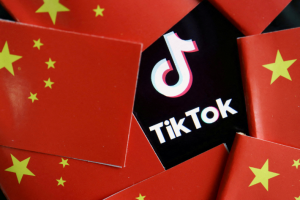(ATF) Morgan Stanley has voiced caution about exposure to Chinese tech firms listed in the US after the national accounting watchdog moved a step closer to removing non-compliant Chinese companies from American exchanges.
The Public Company Accounting Oversight Board (PCAOB) proposed a draft rule last Thursday that signals steady implementation of steps to delist US-listed Chinese companies if it cannot access their audit work papers.
The rule provides a framework to use when determining whether it is unable to inspect or fully investigate accounting firms located in a foreign jurisdiction due to local rules, the PCAOB said. Members of the public have until July 12 to comment on the proposed rule.
Morgan Stanley said in a research report that the move is negative to Chinese American Depositary Receipts (ADRs) that are already suffering from Beijing’s tighter internet regulations, and simmering concerns of rising inflation, which bodes ill for growth stocks.
“We believe this is negative for those stocks affected and would recommend a hedging strategy,” Morgan Stanley wrote.
Under a hedging strategy, investors buy ADRs that are eligible for immediate Hong Kong secondary listing, while selling those ADRs that are ineligible.
The S&P/BNY Mellon’s China ADR Index (.BKCNC), which tracks US-listed Chinese firms such as Alibaba Group Holding, JD.com and Baidu Inc have tumbled nearly 40% since mid-February.
The sharp fall had been driven partly by China’s deepening anti-monopoly campaign, and uncertainty around rising yields amid heightened inflation expectations.
A step closer to delisting
The PCAOB proposal signals the Holding Foreign Companies Accountable Act (HFCAA), aimed at delisting non-compliant foreign companies listed in the US, “is being implemented steadily and is now closer to being fully executed,” the bank said.
“The move marks that the regulatory framework governing US-listed Chinese companies has been established, and will soon be entering an execution phase. Chinese companies that fail to be audited for three consecutive years will face delisting,” analysts from TF Securities said.
The HFCAA is one of several moves made by former president Donald Trump’s administration to restrict Chinese companies’ access to capital markets in the US.
The bill’s passage through the US Senate in May last year spurred an exodus of US-listed Chinese companies – such as Alibaba, JD.com, NetEase, and Yum China – for secondary listings in Hong Kong, as an alternative “safe haven” for raising capital. The HFCAA was signed into law by Trump in December and has gained bipartisan support.
Trump signed an executive order in November 2020 that forced the delisting of three of China’s biggest telecommunication companies and CNOOC Ltd, a unit of China National Offshore Oil Corporation (CNOOC), over purported ties to the Chinese military.
China Mobile, China Unicom, and China Telecom asked the New York Stock Exchange to revisit its delisting decision when Joe Biden took office in January. But the three carriers said earlier this month that they had lost their appeals.
All three are already listed in Hong Kong, while China Telecom filed an application last month for a listing in Shanghai.
Chinese companies from the private sector have had better luck with their appeals against delisting decisions.
Last week, the US Department of Defense (DOD) agreed to remove Chinese smartphone maker Xiaomi Corp from its list of “Communist Chinese Military Companies” (CCMC). This allowed Xiaomi to relist on the US stock exchange.
Shortly after, Nasdaq rescinded its decision to delist another Chinese tech firm – Luokung Technology, a mapping technology company.
Shifting from Wall Street to Hong Kong
As delisting risks loom, global fund managers are reducing their holdings in US-listed Chinese companies, switching instead into shares of the companies listed in Hong Kong.
Temasek, the investment vehicle owned by the Singapore government, said in September it had swapped half its stake in Alibaba – worth about $3 billion – from the United States to Hong Kong.
Others, such as Matthews Asia, own stocks in Chinese firms such as Alibaba through both US and Hong Kong listings.
To date, more than a dozen US-listed Chinese firms have completed what they called a ‘homecoming’ listing, including those done this year for online car-selling platform Autohome, search engine giant Baidu, video-streaming site Bilibili, and online travel giant Trip.com.
Researchers for China Galaxy Securities said in a report in March that over 40 US-listed Chinese firms meet the requirements of a secondary listing in Hong Kong, and they include Pinduoduo, Tencent Music, Vipshop, Weibo, and the electric vehicle trio – Nio, Xpeng and Li Auto.
Queuing up for US’s red-hot market
Meanwhile, the heightened scrutiny of Chinese firms by the US has done little to discourage companies from continuing to seek US listings.
Although the delisting threat could loom large for China stocks in coming years, the threat isn’t imminent and market participants expect a compromise between the Treasury Department and Beijing over accounting oversight.
The Chinese side provided a proposal last August for the PCAOB to inspect Chinese accounting firms while complying with China’s national security requirements, but has not yet received a response, Fang Xinghai, vice-chairman of the China Securities Regulatory Commission (CSRC), said last month at the Boao Forum.
Chinese companies raised around $4.4 billion in the first quarter up to the end of March in 20 separate IPO transactions this year, according to data from Deloitte & Touche. This is an extraordinary pace considering that last year during the same quarter, there were only six US IPOs raising $370 million for Chinese companies.
And more are coming. About 60 Chinese companies plan to go public in the US this year, Vera Yang, chief China representative for the New York Stock Exchange, told CNBC earlier this month.
Companies that have filed for a US IPO include popular podcast app Ximalaya, bike-sharing giant Hello Inc, and cloud service provider Qiniu Ltd.
Also in the race are reportedly online tutoring platform Zuoyebang, the Uber-like ride-sharing giant Didi Chuxing, the Keep fitness app, which is similar to Peloton, and lifestyle sharing platform Xiaohongshu – often referred to as a blend of Instagram and Pinterest.
With reporting from Reuters.
SEE ALSO:
























